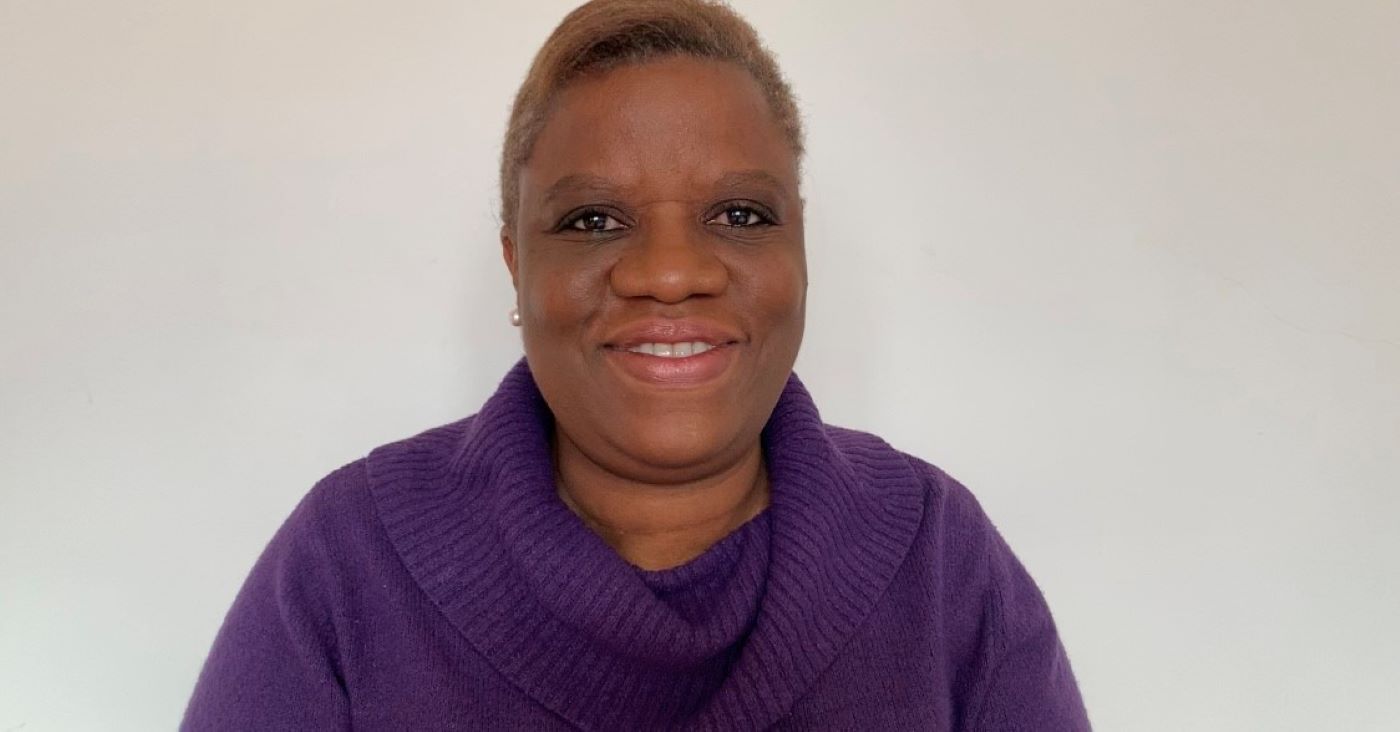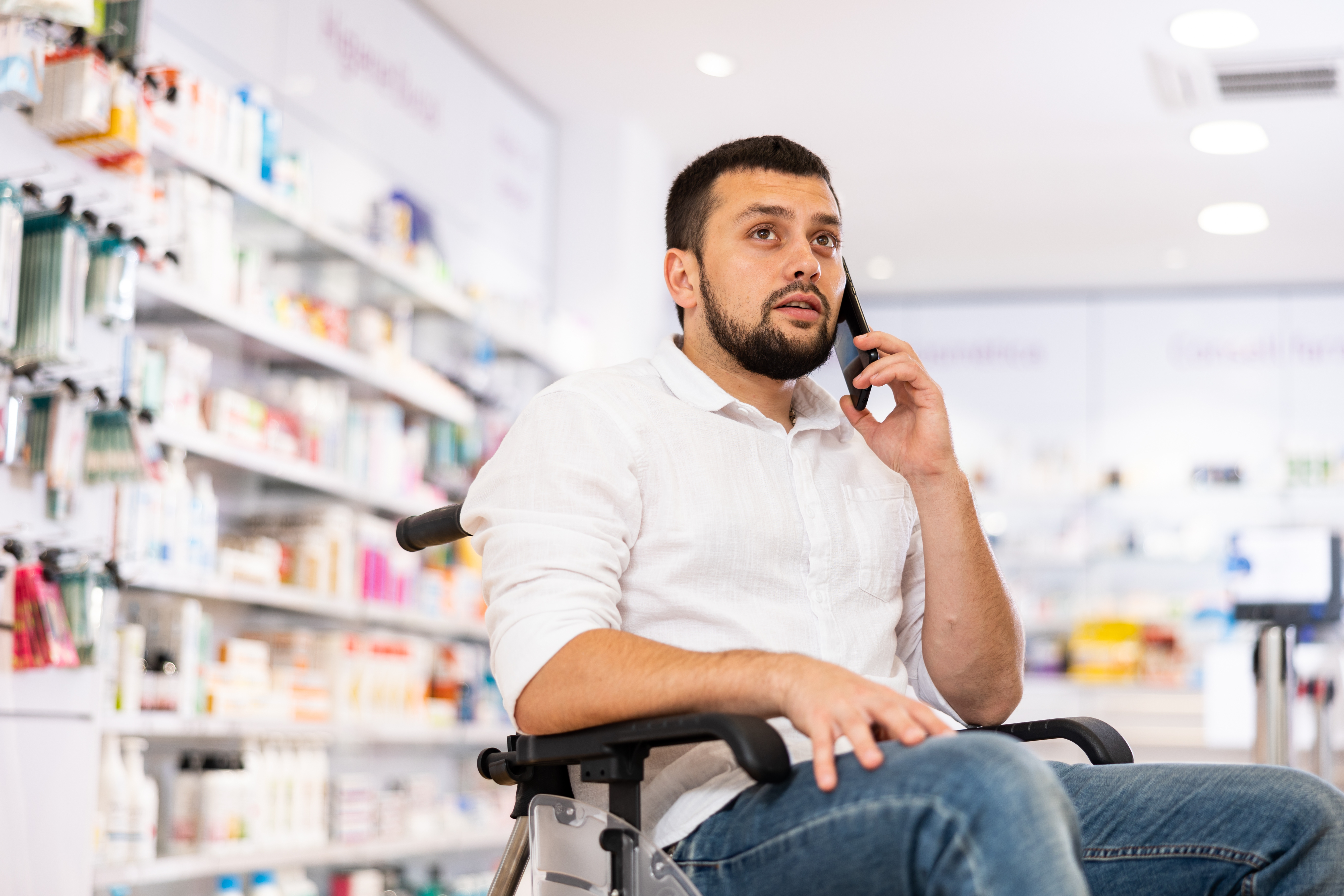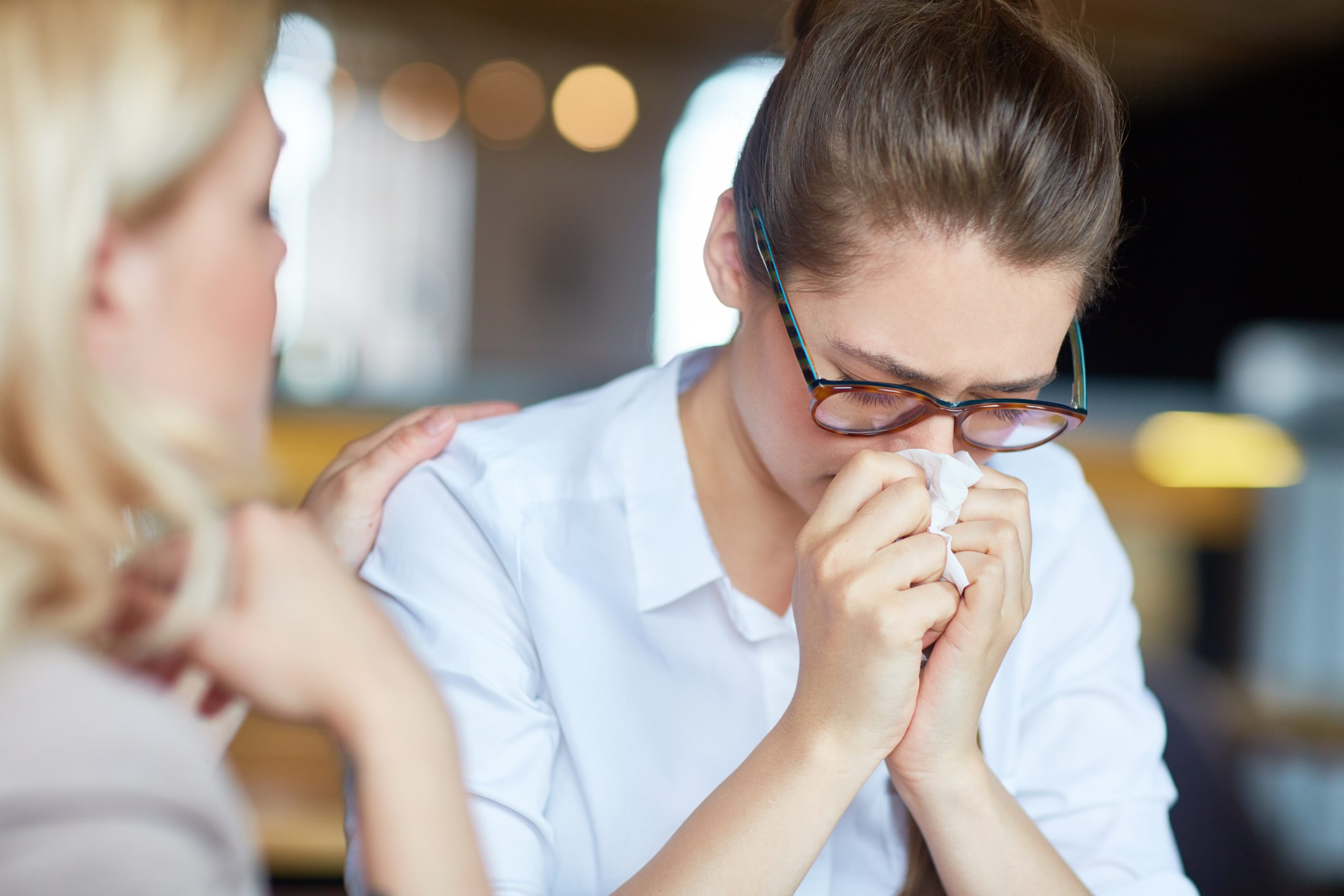
Speaking up should not be a shameful action that can cost your career and affect your mental health.
Elsy Gomez Campos reflects on her struggles with mental health caused by a challenging and unsupportive work environment, and how she overcame them.

We understand that discrimination can be incredibly stressful and upsetting. This page contains information about discrimination and what you can do if you experience it at your place of work.
As the profession’s independent charity championing wellbeing, we hope that all pharmacists, students and trainees will be treated fairly during their career and given equal opportunities to succeed. Sadly, some people do experience discrimination during their studies or career, so on this page you’ll find out what workplace discrimination is and how to spot if you or someone else is experiencing it, the effects of discrimination on mental health and wellbeing, and where to go for help.
Discrimination at work happens when someone is treated less favourably than others because of a protected characteristic. This can include being passed over for promotions, receiving unfair treatment, or being harassed. The Equality Act 2010 makes it illegal to discriminate against employees, job applicants and trainees.
Protected characteristics are:
A person can be discriminated against in different ways. The forms of discrimination are:
Direct discrimination: Treating someone less favourably because of a protected characteristic. (Direct discrimination also includes Discrimination by Association. This means treating someone less favourably because they are associated with someone who has a protected characteristic. It also includes Discrimination by Perception. This means treating someone less favourably because others mistakenly believe they have a protected characteristic).
Example: Not hiring someone because of their race or gender
Indirect discrimination: When a policy or practice applies to everyone but disadvantages a particular group.
Example: A company policy requiring all employees to work on Saturdays, which could disadvantage those who observe religious practices on that day. This may not always be discrimination if a business is using “Proportionate Means” to achieve a “Legitimate Aim”. This could be a pharmacy that is required to open on a Saturday to meet the needs of its patients.
Harassment: Unwanted behaviour related to a protected characteristic that violates someone’s dignity or creates an intimidating environment.
Example: Making derogatory comments about someone’s disability.
Victimisation: Treating someone unfairly because they have complained about discrimination or supported someone else’s complaint.
Example: Demoting an employee because they filed a discrimination complaint.
See the ACAS website for further information on forms of discrimination and support.
Employees with protected characteristics have the right to:
Equal treatment: To be treated the same as others in similar situations.
Reasonable adjustments: Employers must consider adjustments to help employees with disabilities perform their jobs. Employers are not obliged to consider adjustments for other protected characteristics. However, employers must still ensure they do not discriminate against employees based on these characteristics.
Protection from harassment: Employees should not face unwanted behaviour related to a protected characteristic that makes them feel intimidated or humiliated.
See the government website for further information on the rights of employees with protected characteristics.

Employees with protected characteristics have the right to equal treatment, reasonable adjustments and protection from harassment.
We understand that discrimination can be incredibly stressful and upsetting. This page contains information about discrimination and what you can do if you experience it at your place of work.
A survey by The Pharmaceutical Journal indicates that 30% of UK pharmacists feel discrimination has hindered their career progression. Discrimination based on sex (36%), race (34%), and age (29%) were the most cited factors. Other reported causes include pregnancy, religion, disability, and more. The survey suggests a lack of diversity in senior pharmacy roles and emphasizes the need for equal career opportunities for all pharmacists, regardless of personal characteristics.
Members of the Royal Pharmaceutical Society can read more on this in the Pharmaceutical Journal.
Practical advice and support
If you think you have been discriminated against, you can:
Go to our Specialist Advice service
Discrimination can lead to stress, anxiety, and depression. It can affect self-esteem and overall mental health, making it harder to perform well at work and enjoy life. If discrimination has caused you stress or has affected your mental health or wellbeing, consider:
Talking to someone
Talking to someone about your experiences of discrimination can help reduce feelings of isolation and validate your experiences. It may also offer new perspectives and coping strategies, and can increase resilience and encourage emotional healing. This could be simply sharing how you feel with a trusted family member, friend or colleague.
Alternatively, you could seek peer support in the form of a listening ear from another pharmacist. Our Listening Friends peer support service enables you to speak in confidence and anonymously to one of our trained volunteer pharmacists about any stresses you are experiencing in your work or personal life.
If discrimination has impacted your mental health, you could consider counselling. We offer a confidential counselling service for pharmacists and their families, former pharmacists, trainee pharmacists and pharmacy students.
Joining a support group
Sharing experiences with others who have faced similar challenges can offer comfort and practical advice. You could look for groups that support people who share the same protected characteristics. The gov.uk website allows people to search by postcode for community support groups or organisations. Mind, the mental health charity also has a webpage on how to find a support group. For further information see the Mind website.
Practising self-care
Engage in activities that promote relaxation and wellbeing can help you reduce stress and improve mood. It can also help build the resilience, confidence, and motivation needed to seek the right help and take positive steps forward.
Our website contains a range of helpful information pages and resources to help improve your mental health and wellbeing.
Get mental health and wellbeing support
Our Wellbeing Learning Platform, which is for individual wellbeing learning and training and is available to pharmacists, trainees and students, has many workshops and videos to support your mental wellbeing. Sign up to our platform for free and access a range of free online wellbeing workshops and other resources at a time that suits you.
Pharmacist Support
We understand that being treated unfairly at university, training or work, regardless of whether it is because of a protected characteristic, can have upsetting consequences, impacting mental health and wellbeing. Students, trainees and pharmacists who are being treated unfairly can access support on bullying on our website.
Pharmacists’ Defence Association
The PDA is a not-for-profit organisation which supports the needs of pharmacists, pharmacy students, and trainee pharmacists. The PDA can provide access to expert advice from experienced pharmacists and lawyers. The PDA also has member Equality, Diversity & Inclusion (EDI) networks such as National Association of Women Pharmacists (NAWP), the Black Asian and Minority Ethnic Pharmacists Network (BAME Network), the Disabled Pharmacists Network (Ability Network), and the Lesbian, Gay, Bisexual and Transgender Pharmacists Network (LGBT+ Network).
Citizens Advice
Citizens Advice offers guidance on discrimination and legal rights.
Equality and Human Rights Commission
The Equality and Human Rights Commission provides information on the Equality Act 2010.
Acas
Acas offers advice on workplace discrimination and resolving disputes.
Mind
Mind is a leading mental health charity which offers mental health support and resources.
Disability Rights UK
Disability Rights UK provides information and support for people with disabilities.
UK Black Pharmacist Association
The UK Black Pharmacist Association aims to empower black pharmacists, trainee pharmacists and students by shedding light on the factors that limit their choices and opportunities and amplifying voices and experiences to drive real change and reduce racial discrimination in the field of pharmacy.
The Inclusive Training within Practice (ITP) Project
The Inclusive Training within Practice (ITP) project, funded by NHS England South West and led by University of the West of England, Bristol (UWE), provides free learning resources to support inclusive practices in both healthcare and education. These resources aim to address the root causes of racism and discrimination, with the goal of improving the experiences and outcomes of Black, Asian, and Minority Ethnic learners, as well as international staff working in healthcare. Healthcare professionals across England, Wales, and Scotland can access a wide range of materials covering topics such as culturally appropriate wellbeing support.
We would like to thank our partner organisation the Pharmacists’ Defence Association (PDA) for reviewing this webpage. PDA members can contact the PDA if they need support with discrimination.
This page was updated in September 2025.

Elsy Gomez Campos reflects on her struggles with mental health caused by a challenging and unsupportive work environment, and how she overcame them.

This page looks at how to manage a mental or physical disability as a pharmacy student, trainee or pharmacist.

Bullying and harassment have no place at work. This page provides information about how to spot bullying and harassment, and guidance on how to deal with them.